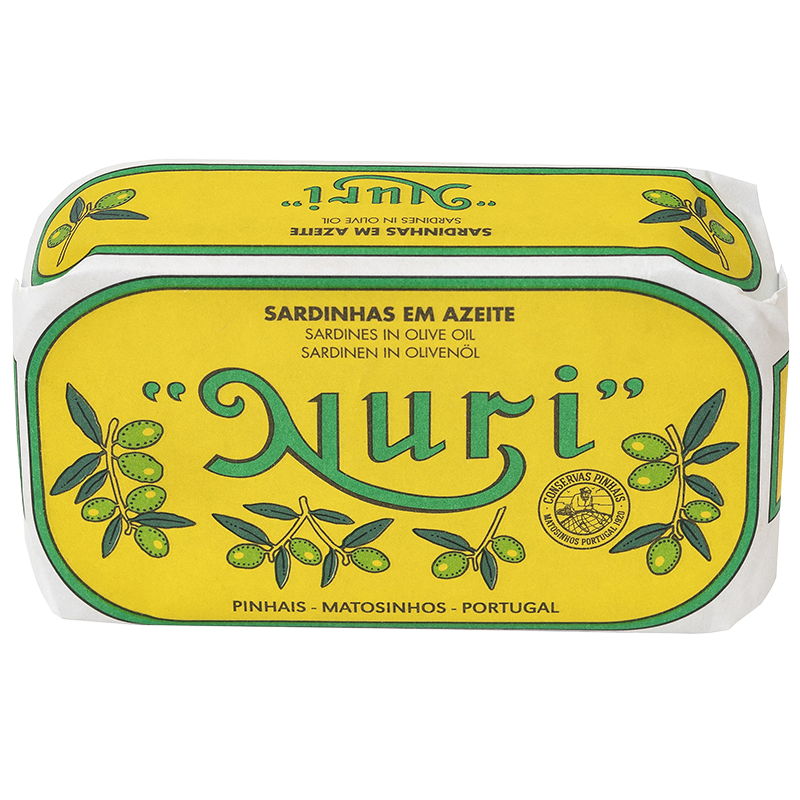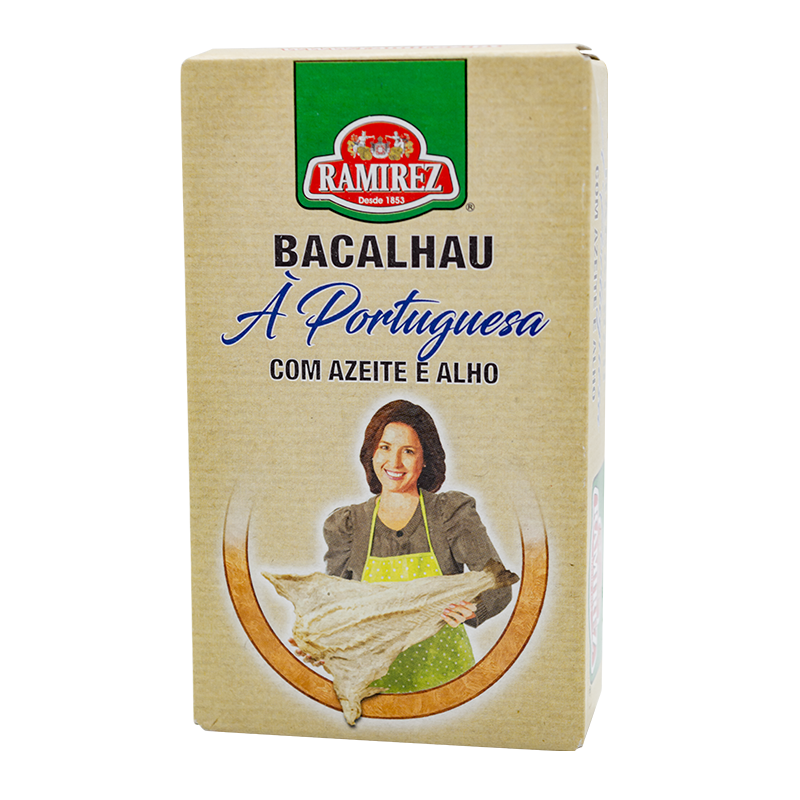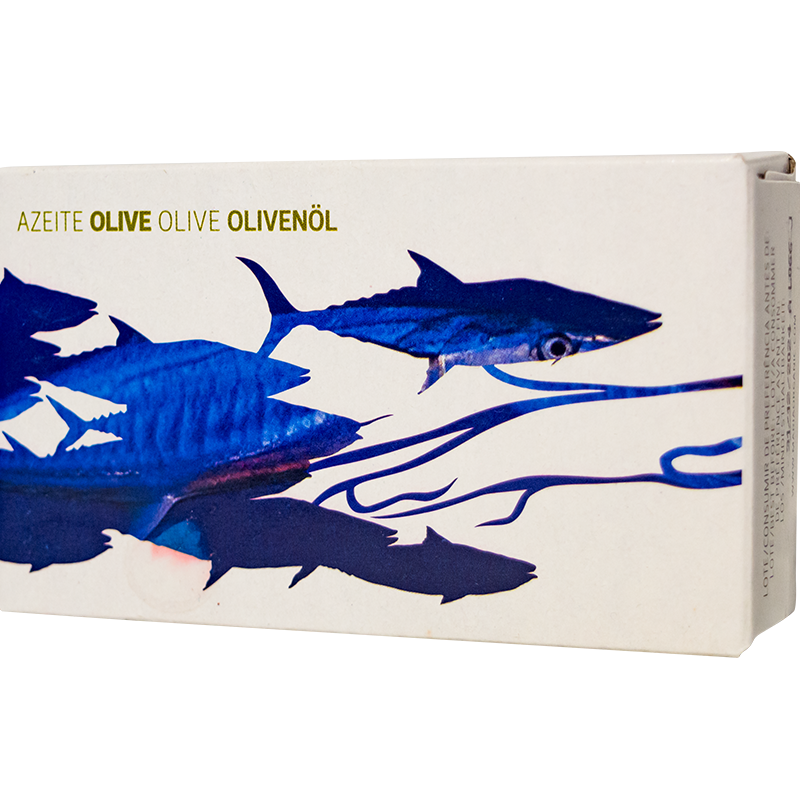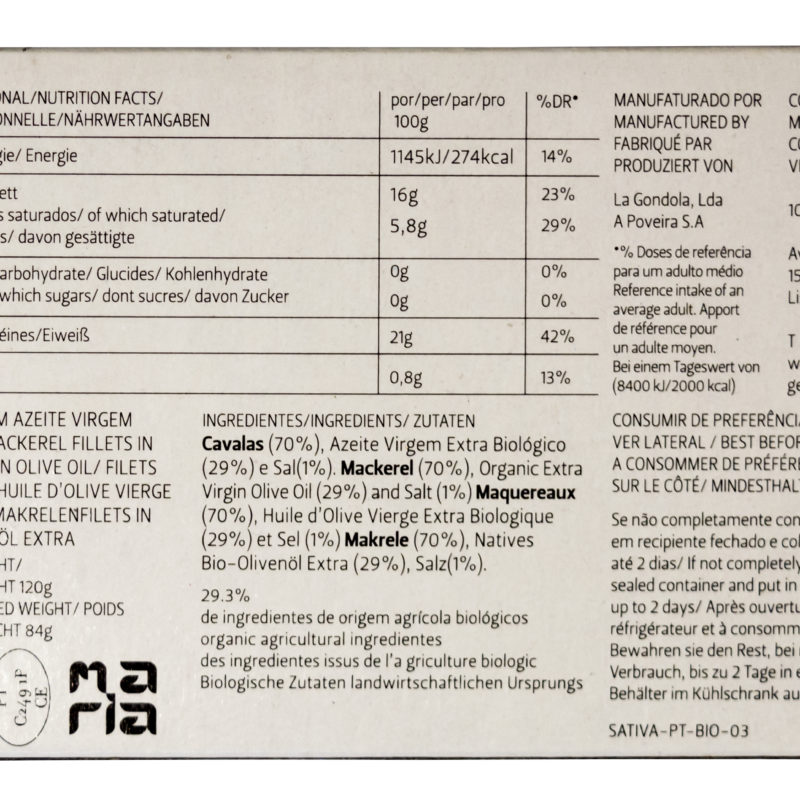-
×
 Nuri sardines in olive oil, 125 g
1 × 4,47 €
Nuri sardines in olive oil, 125 g
1 × 4,47 € -
×
 Ramirez codfish in olive oil and garlic, 120 g
2 × 5,09 €
Ramirez codfish in olive oil and garlic, 120 g
2 × 5,09 €
There are countless breeds of mackerels, most popular among them, though, is the Atlantic mackerel. This is the type of mackerel whos consumption and fishing is most prominent. These fast swimmers typically inhabit the colder seas of Europe and North-America.
Canned mackerels provide a tasty alternative to canned sardines, tuna or salmon. It’s a fish with a higher fat content, and also a higher content of healthy, polyunsaturated fatty acids, so eating it on a regular basis can help maintain a healthy heart. A mere 85 grams of mackerel contains 1.1 grams of Omega-3! Similar to the tuna fish, mackerels are also an important source of proteins and vitamin B: it contains high doses of vitamin B12, for example. 85 grams of mackerel covers 200% of yourvitamin B12 Dietary Reference Intake! Furthermore, mackerels contain a large amount of selenium, and further essential minerals, which prohibit the forming of free radicals in the body.

Types of mackerels:
Atlantic mackerel
It’s glistening blue-green color, and it’s particular pattern makes this breed easily recognizable. Their weight is usually around 0.5 kilograms, and their size varies between 10 and 18 cm. These mackerels have darker meat than the Atlantic Spanish kind, and also have a stronger, oilier taste to them.
Pacific Jack mackerel
Their weight is usually somewhere between 20-40 kg, and their meat is lighter, beige colored. Similar to the Spanish mackerel they have a milder, slightly sweeter taste. The Jack is frequently used for cans.
King mackerel
This fish, residing in the Pacific Ocean, tastes very similar to the Atlantic mackerel. Its meat has a firm texture, and a characteristic, rich taste.
Pacific mackerel
These fish have a similar taste and texture to the Atlantic mackerel. You can find wavy patterns on their bodies, which are around 20 cm long.
Atlantic Spanish mackerel
These dark green fish are distinguishable from other mackerels by their shiny, silver and golden-yellow spots on their bodies. Their average weight is around 1 kilogram. Their taste is milder, and their fat-content is lower than that of other mackerels. (It’s only one-third of the Atlantic mackerel’s).
This fish is extremely rich in vitamins, polyunsaturated fatty acids and also in minerals. It contains a high amount of Omega-3 and Omega-6 fatty acids, and vitamins A, B6, B12, C, D, E and K. Its Calcium, iron, magnesium, potassium and selenium contents are also high. It has plenty of beneficial effects on our health.
They contribute to maintaining our cells’ good health
The coenzyme Q10 found in mackerels improves cells’ health, metabolism, and can lower the risk of some neoplastic diseases. The vitamin B12 and selenium found in mackerels have also proven useful in the treatment of cancer.
Boosting the immune system
Their consumption can strengthen the immune system, and can improve resistence to some diseases. Omega-3 fatty acids are proven to have an anti-inflammatory effect, and can even be helpful in the treatment of arthritis, and lower the risk of heart diseases.

 Ramirez codfish in olive oil and garlic, 120 g
Ramirez codfish in olive oil and garlic, 120 g 
